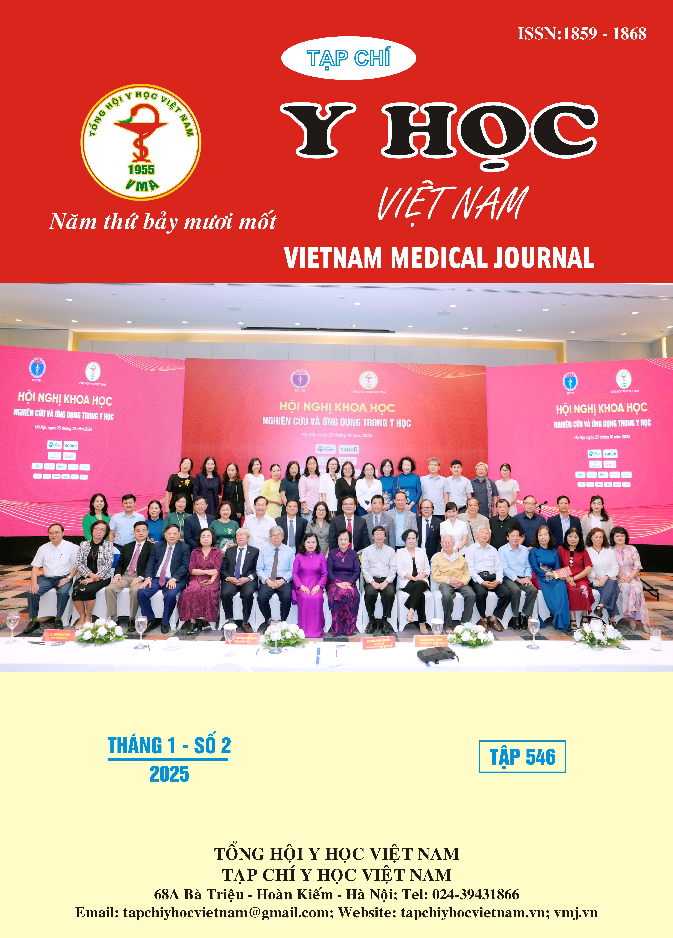INVESTIGATION OF QUALITY OF LIFE AND RELATED FACTORS OF PATIENTS WITH PERMANENT ATRIAL FIBRILLATION AT 115 PEOPLE’S HOSPITAL
Main Article Content
Abstract
Background: Atrial fibrillation is a common cardiac arrhythmia. Atrial fibrillation affects quality of life of many patients. Assessment of quality of life of patients with atrial fibrillation contributes to determine treatment goals and best patient management. Objectives: To investigate quality of life and related factors of patients with permanent atrial fibrillation. Methods: Cross-sectional study in 167 permanent atrial fibrillation patients admitted to Department of Cardiac Arrhythmias, 115 People’s Hospital from April 2020 to December 2020 using SF-36 questionaire. Results: Quality of life was reduced with average score of 50,52. General health was most impaired (36,05 points). Physical health’s score was lower than mental health’s score (46,25 points and 52,30 points with p < 0,0001). Factors related to score of quality of life included age (b = - 0,92), duration of atrial fibrillation (b = - 0,33), numbers of hospitalization per year (b = - 1,71), numbers of comorbidities (b = - 1,82) and use of rate control medications (b = 1,79). Conclusion: Quality of life of patients with permanent atrial fibrillation significantly reduced in general health and physical health. Factors related to quality of life included age, duration of atrial fibrillation, numbers of hospitalization per year, numbers of comorbidities and use of rate control medications.
Article Details
Keywords
quality of life, atrial fibrillation, mental health, physical health, SF-36.
References
2. Hagens V. E., Ranchor A. V., Van Sonderen E., et al. Effect of rate or rhythm control on quality of life in persistent atrial fibrillation. Results from the Rate Control Versus Electrical Cardioversion (RACE) Study. J Am Coll Cardiol. 2004;43(2):241-7.
3. Lioni Louiza, Vlachos Konstantinos, Letsas Konstantinos P., et al. Differences in quality of life, anxiety and depression in patients with paroxysmal atrial fibrillation and common forms of atrioventricular reentry supraventricular tachycardias. Indian Pacing Electrophysiol J. 2014;14(5):250-257.
4. Peinado Rafael, Arribas Fernando, Ormaetxe José Miguel, Badía Xavier. Variation in Quality of Life With Type of Atrial Fibrillation. Revista Española de Cardiología (English Edition). 2010;63(12):1402-1409.
5. Raine D., Langley P., Shepherd E., et al. Effect of catheter ablation on quality of life in patients with atrial fibrillation and its correlation with arrhythmia outcome. Open heart. 2015;2(1):e000302.
6. Stridsman M., Stromberg A., Hendriks J., Walfridsson U. Patients' Experiences of Living with Atrial Fibrillation: A Mixed Methods Study. Cardiology research and practice. 2019;2019: 6590358.
7. Tsounis D., Ioannidis A., Bouras G., et al. Assessment of health-related quality of life in a greek symptomatic population with atrial fibrillation: correlation with functional status and echocardiographic indices. Hellenic journal of cardiology: HJC = Hellenike kardiologike epitheorese. 2014;55(6):475-85.
8. Zhang L., Gallagher R., Neubeck L. Health-related quality of life in atrial fibrillation patients over 65 years: A review. European journal of preventive cardiology. 2015;22(8):987-1002.


